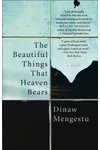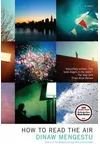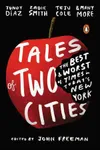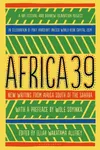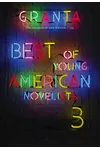Picture a storyteller who weaves tales of exile and identity with lyrical grace—meet Dinaw Mengestu! Born in Ethiopia and raised in the U.S., this Ethiopian-American novelist captures the heartbeat of the immigrant experience. His novels, like The Beautiful Things That Heaven Bears, resonate with readers worldwide, blending raw emotion with sharp cultural insight.
Mengestu’s journey from Addis Ababa to literary stardom is as compelling as his prose. With awards like the MacArthur Fellowship under his belt, he’s a voice for the African diaspora, crafting stories that bridge continents and challenge the American Dream’s glossy promise.
The Making of Dinaw Mengestu
Born in 1978 in Addis Ababa, Ethiopia, during the brutal Red Terror, Dinaw Mengestu’s early life was shaped by upheaval. His father, an Ethiopian Airlines executive, sought political asylum in Italy while his mother was pregnant with him. At age two, Mengestu, his mother, and sister reunited with his father in Peoria, Illinois. The family later moved to the Chicago suburbs, where Mengestu grappled with his identity as a Black African in a predominantly white landscape. A love for books became his refuge, sparking a passion for storytelling. He earned a B.A. in English from Georgetown University and an MFA from Columbia University, setting the stage for his literary career.
Dinaw Mengestu’s Unforgettable Stories
Mengestu’s debut novel, The Beautiful Things That Heaven Bears (2007), is a poignant tale of Sepha Stephanos, an Ethiopian immigrant running a struggling D.C. grocery store. Its lyrical prose and unflinching look at gentrification and exile earned it a spot as a New York Times Notable Book. His second novel, How to Read the Air (2010), follows a young man unraveling his parents’ past, blending fact and fiction with haunting beauty. It won the Ernest J. Gaines Award and solidified Mengestu’s reputation.
All Our Names (2014) explores love and revolution through dual narratives in Uganda and the Midwest, showcasing Mengestu’s knack for complex characters. His latest, Someone Like Us (2024), delves into grief and belonging, earning praise as one of President Obama’s top ten books of the year. Mengestu’s style—intimate, layered, and never preachy—uses themes of displacement and identity to craft stories that linger long after the last page.
Beyond novels, Mengestu’s journalism for outlets like The New Yorker and Rolling Stone tackles conflicts in Darfur and Uganda, reflecting his commitment to amplifying marginalized voices. His work, translated into over 15 languages, resonates globally.
Why Dinaw Mengestu Matters
Mengestu’s impact lies in his ability to humanize the immigrant experience, making the personal universal. His stories challenge readers to confront the complexities of race, belonging, and memory in a globalized world. As a 2012 MacArthur Fellow and a leader at PEN America, he advocates for free expression, amplifying silenced voices. Mengestu’s work not only enriches contemporary literature but also fosters empathy across cultures, cementing his legacy as a literary bridge-builder.
About Dinaw Mengestu
- Birth Date: June 30, 1978, in Addis Ababa, Ethiopia
- Key Works: The Beautiful Things That Heaven Bears, How to Read the Air, All Our Names, Someone Like Us
- Awards: 2012 MacArthur Fellowship, National Book Foundation 5 Under 35, Guardian First Book Award
- Current Role: Program Director of Written Arts at Bard College
Snag The Beautiful Things That Heaven Bears and dive into Dinaw Mengestu’s soul-stirring world of identity and exile!
